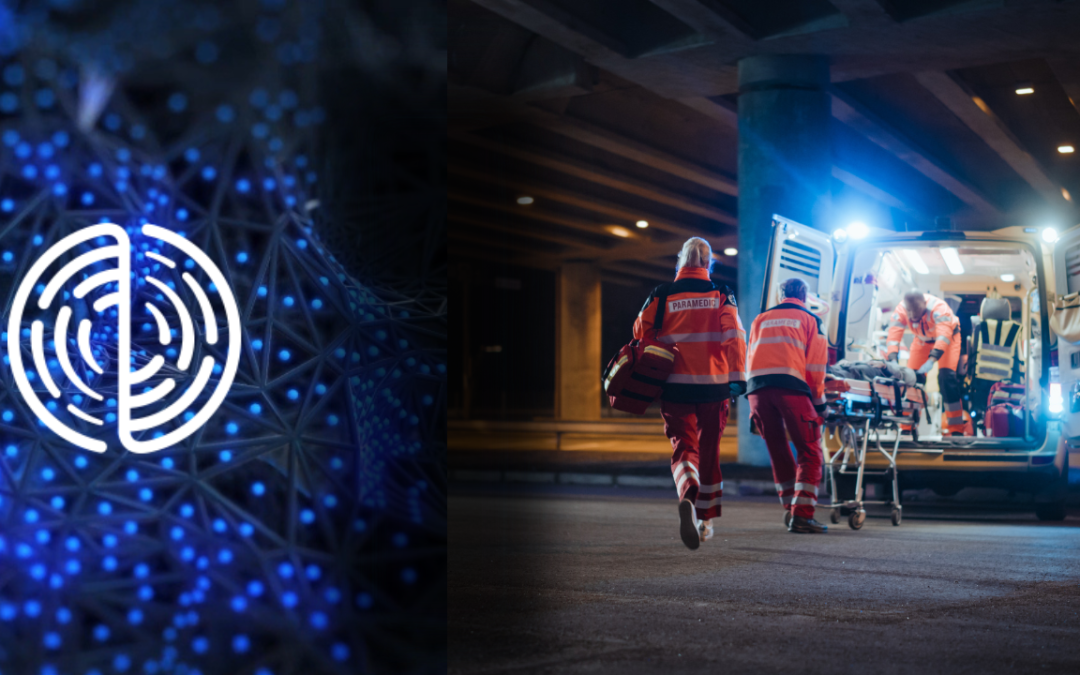
Sense Neuro’s Technology Will Change the Treatment of Neurological Disorders
The effects of stroke and traumatic brain injury (TBI) touch every person. 15 million people suffer from strokes and more than 50 million people experience a TBI every single year. In the U.S. alone, up to 80,000 patients are misdiagnosed every year, potentially leading to permanent disability or death.
Our solution: a headset transmitting a low-power radio frequency through the entire cranial vault that detects TBI and stroke. This core technology is in three headsets to be used in three vastly different environments. We hope this will change the face of the treatment of neurological disorders as our technology evolves to detect and diagnose in real time.
Founder Dr. George Shaw is fighting for our non-invasive headsets to be utilized to the fullest extent so we can meet this tremendous, unmet medical need. “We’re going to be able to bring technology in the field, in the E.R., the ICU, the military, anywhere a stroke or traumatic brain injury will present itself,” Shaw says. “We will be able to detect a condition very quickly so that people are able to come in and get the kind of treatment they need as quickly as possible.”
Here are the places Sense Neuro’s technology will make a difference in the lives of those who suffer from stroke or TBI so far.
Emergency Rooms
Dr. Shaw says every trauma care facility needs NeuSTAT for continuous hospital monitoring. He sees neurological cases in the ER constantly. He adds, “This will improve your triage for the head-injured patient. It’ll reduce your time to diagnosis for intracranial hemorrhage, for any cranial hemorrhage. And it will reduce your time to treat or transfer those folks as well.”
ERs are notoriously busy and patients can spend a lot of time in the waiting room, sometimes for hours. Our devices are easy-to-use, accurate, and fast so that medical professionals don’t risk losing precious time when treating a neurological deficit.
Also, the device doesn’t just detect a hemorrhage. It can monitor the patient over time to see if a bleed expands. Instead of disconnecting the patient and moving them to get a CT scan after several hours, the NeuSTAT device can detect if their condition is worsening in real time.
Ambulances
If getting to the hospital via ambulance, EMTs making the decision at the point of onset can be the difference in a more positive outcome. If suffering from an ischemic or hemorrhagic stroke, the goal is to get to a hospital with a stroke center that will be able to give the best treatment possible. Our NeuroHawk EMS device is positioned to support the EMT decision-making process.
Chief Commercial Officer Eric Bailey, with four decades of experience improving medical imaging devices, says getting the right treatment in that short time could be the difference between life and death if you’re taken to the wrong hospital.
“It’s going to be a waste of time and to get out of that hospital. It could take you hours and by then your brain injury could either have killed you or you’re severely injured,” Bailey adds. “Brain doesn’t regrow. That’s the other thing here, is that you lose it. It’s gone.”
We designed NeuroHawk EMS to have a small footprint that easily fits in an ambulance. It’s also simple to use and gives results in minutes. That way, if EMTs detect a TBI, then they can go to a trauma center. But if they detect a stroke, they can redirect to a hospital with a stroke center to ensure the best care possible.
Military
About 468,000 service members have been diagnosed with a TBI since 2000 due to blasts or injuries in combat or during training. But most of the time these are not getting diagnosed until the service member is at home or on base.
Bailey, a veteran and graduate of the Citadel, knows the difference this device can make. He says, “I lost my roommate to Desert Storm. He was the only kid out of the Citadel that died in Desert Storm. And I like to think that maybe he’d be alive today if he had this device was in the battlefield.”
NeuroHawk Military is small, portable, and accurate so people on the front line can get the answer they need in real time so they know whether that service member needs to be transported out of the field or not.
The Future of Sense Neuro
We’re now on our way to FDA clearance and can’t wait to bring this technology to a field that desperately needs objective detection and monitoring of stroke and TBI, which when left untreated or improperly treated has a $300 billion impact on the U.S. healthcare system each year. NeuSTAT, NeuroHawk EMT, and NeuroHawk Military are the solution that can lead to better outcomes for patients and neurological deficits.

